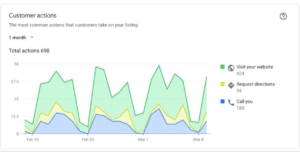hourly
1
1. Do Not Use These Seven Forbidden Words
- Specialist/Specialize – unless you are certified as a specialist by your state bar or an organization approved by your state bar or the American Bar Association, you cannot use the word “specialize” or “specialist” to describe you or your services.
- Guarantee/Promise – not even the best attorneys can guarantee or promise results. Using this language sets unjustified expectations and violates a code of conduct, so avoid these words unless they refer specifically to something you can control 100% of the time. For example, if your client is not satisfied with your services, you will return their fee.
- Get/Obtain – although these words appear to be harmless, they can get a lawyer into serious trouble, especially when combined with “results.” If your internet marketing includes wording like, “We will get results for you,” it’s another example of setting unjustified expectations. Instead, use phrases such as, “We will work hard on your behalf throughout the entire process.”
- Results – when the word “Results” is used in slogans like “Experience, Dedication, Results,” this word is generally okay because it does not imply a specific outcome. However, avoid phrases like, “We work to obtain money for your injuries,” or “Our firm guarantees the results you deserve.” Do not talk about the results you will achieve for your clients. So long as it is the truth, you can write about past results or successes you have had with previous clients, e.g. “We’ve successfully represented thousands of clients,” or “We helped our client John achieve a six-figure settlement.”
- Most/Best/Top – unless you want to hear from the Bar about a complaint, do NOT use these words in your internet marketing. Why? It’s a comparison of your services to your competitors, which cannot be factually substantiated.
- Deserve – this one is murkier because there is no specific rule that prohibits its use. However, if you use it in the following way, you will most likely run afoul of Bar regulations: “We help clients obtain the money they deserve.” From the Bar’s perspective, using the word, “deserve,” in this way is misleading because it implies a promise to do something, and that everyone deserves to recover something. When referring to a settled case, you could say, “We helped our client Mary, seek to recover the money she deserved.”
- Expert – there is no ethics opinion that explicitly forbids the use of this word to describe your services but in your law firm’s best interest, we recommend avoiding it in your digital marketing. If you refer to yourself as an “expert,” you may be called upon to substantiate your claim. Instead, describe your law firm as “experienced,” “professional,” “knowledgeable,” and “responsive.”
2. Do Avoid False or Misleading Statements on Your Website
In our experience, most attorneys run the risk of violating their state bar’s rules governing internet marketing and advertising when explaining their fees, describing their abilities and areas of expertise, and promoting their past results with clients. As we mentioned in point #1 (above), false or misleading statements include hyperbolic descriptions of your law firm using words like “expert” or “specialist.” Forbidden, self-laudatory statements also include words like “better, “best,” and “cheapest.” To remain in compliance, stick to the truth. Everything published on your website and on social media must be factual. Keep in mind, in some states your years of experience as an attorney, client testimonials, endorsements, and previous case results can be considered false and misleading advertising. When in doubt, it’s best to check with your state Bar association before publishing any content online that could violate their code of ethics.
3. Do Assume Responsibility for Your Website Content If You Are the Attorney
In a general sense, internet marketing must include at least one named attorney as the party responsible for the content. This is another area where the requirements set forth by individual state Bar associations vary. In many states, the name of the responsible lawyer or law firm must be prominently displayed somewhere on their website, while in other states, the responsible party’s name must appear on the home page. To eliminate any possibility of violating your state bar’s code of ethics, we suggest that attorneys publish their name on every page of their website.
4. Do Publish Your Office Location or Address As Required
In reference to the geographic location of your law firm, it’s likely your jurisdiction has some requirements. For the most restrictive states, lawyers and law firms must publish the city or town of their firm’s principal location on their website’s home page. Adding links to the home page that takes a reader to another page where their geographic location is published will not satisfy this requirement. Other states forbid lawyers and law firms to advertise satellite office locations on their websites unless these locations meet one of the following criteria: they are staffed at least three days a week, the website clearly states the days and times the attorney is present at that location, or the website instructs the reader that meetings at that location are by appointment only.
DISCLAIMER
This Blog is not intended to be legal advice for a lawyer or law practice. No special relationship or privilege exists between you and the Blog and/or its owners, Law Firm Marketing Pros or its Affiliates (“LFMP”). LFMP IS NOT A LAW FIRM and THE AUTHOR IS NOT AN ATTORNEY. You will be representing yourself and your law practice in any legal matter you undertake or any Client you represent as a result of your use of the information provided in the Blog, including any Services offered through the Blog and content available on the Site the Blog is published on, and in all other matters relating to you and your businesses. This Blog may provide audio-video content, referenced articles, newsletters, and other content is for informational purposes only. In the process of providing this information, the Blog is engaged in the publication of information regarding business and management issues that may be commonly encountered by law firms. This blog is not a substitute for the advice of an attorney. This Blog does not review any of your answers to questions for sufficiency, provide legal advice, or analyze applicable law and apply it to your specific requirements. Accordingly, if you need legal advice for a specific issue, you are advised to seek the advice of your local, state and /or national Bar Association.
Do you still have questions about digital marketing? Schedule an appointment with us today at 561-948-5001. Click here to download one or more of our free tools, including a Digital Marketing Checklist for Law Firms.
Law Firm Marketing Pros
250 S. Central Blvd
JUPITER, FL, 33458
561-948-5001
https://lawfirmmarketingpros.com/
Copyright 2020. Law Firm Marketing Pros. All Rights Reserved
]]>
In an SEO roundtable consisting of five of the top Local SEO minds in the United States and Canada, someone asked the question on everyone’s mind, “Can you add a tracking number to your listing?” Andy answered it fully and removed all confusion about an action that may not be intuitive even for the most accomplished digital marketer.
He explained that GMB (Google My Business) has many features and some best-practices that can leave the savviest digital marketer scratching their head. Organically, themost effective way to rank and get found on page one of Google in a local market is by claiming and optimizing your GMB listing, then building a boatload of valued citations and backlinks, etc, etc, etc. But how do you track the progress of that listing?
Google My Business listing dashboard provides certain insights. It reveals the total searches broken down by direct, discovery, and branded queries used to find your business, or what people are searching; total views on search and maps; and customer actions such as website visits, request for directions, and calls. Clarifying that it goes a bit deeper than that, Andy paused for a moment to focus on calls, as represented in the image below.
According to Andy, it’s well known that the “call you” metric is not exactly accurate. Why? It can only show the number of clicks-to-calls from a mobile device. But what about the desktop calls – the calls that come from people searching from their desktop, laptop, or iPad? These potential clients and customers like to pick up the phone and dial the number they see. In some industries and age demographics, this type still comprises half, if not the majority of calls.
So, how do we track them?
As you might have guessed, that’s what everyone at the SEO roundtable wanted to know. If you are an SEO expert in search of the next level of reporting as it relates to call-tracking, the answer is exactly what you want to hear.
Before we delve into the subject, let’s review the benefits of your Google My Business listing. Not only does your GMB increase your chances of showing up in the Google Local 3-Pack, when someone searches your business by name, Google often displays a Knowledge Panel with detailed information about your company.
Where do these details come from? Google pulls them directly from your GMB listing and information it finds from other online sources and user-generated content such as third-party reviews, Q&A’s, user-suggested information, and so on.
Furthermore, over the past few years, Google has added a ton of amazing features for businesses to use to enhance and optimize their GMB listings – including the ability to manage multiple locations within one dashboard. If you’re not taking advantage of these advanced features, it’s time to log into your Google My Business dashboard and start optimizing it.
Can You Use a Tracking Number on Your Google My Business Listing?
As Andy noted at the roundtable, his forte and the forte of Law Firm Marketing Pros is Local SEO & GMB. Historically, there was always a concern that if you use a tracking number, your GMB listing might show inconsistent NAP (Name, Address & Phone), which would negatively impact rankings.
About two years ago, Andy and his team discovered through forums and conversations that you could, for instance, make the CallRail (tracking) number the “primary phone” number within a GMB listing, and make the actual business number an “additional number,” without detracting from NAP consistency, allowing you to track EVERY call made via your Google My Business listing.
Make sure you move the primary number to the “additional number” field on the GMB. Andy and Law Firm Marketing Pros use CallRail for this purpose. In fact, CallRail now has an integration: once you create your local GMB tracking number within their dashboard, you trigger the integration to GMB and it will automatically push that tracking number to the “primary number” field and push the main business number to the “additional number” field.
Would You Now Use that Tracking Number When Building Citations (business directory listings)?
No. Use the primary business number in all of the directories outside of your
GMB listing. Since the main business number is in the additional phone number field within your GMB listing, Google will recognize that number and align it with the NAP throughout the digital ecosystem, to maintain your NAP consistency. Again, only the GMB has the tracking number.
DISCLAIMER
This Blog is not intended to be legal advice for a lawyer or law practice. No special relationship or privilege exists between you and the Blog and/or its owners, Law Firm Marketing Pros or its Affiliates (“LFMP”). LFMP IS NOT A LAW FIRM and THE AUTHOR IS NOT AN ATTORNEY. You will be representing yourself and your law practice in any legal matter you undertake or any Client you represent as a result of your use of the information provided in the Blog, including any Services offered through the Blog and content available on the Site the Blog is published on, and in all other matters relating to you and your businesses. This Blog may provide audio-video content, referenced articles, newsletters, and other content is for informational purposes only. In the process of providing this information, the Blog is engaged in the publication of information regarding business and management issues that may be commonly encountered by law firms. This blog is not a substitute for the advice of an attorney. This Blog does not review any of your answers to questions for sufficiency, provide legal advice, or analyze applicable law and apply it to your specific requirements. Accordingly, if you need legal advice for a specific issue, you are advised to seek the advice of your local, state, and /or national Bar Association.
CTA: Would you like more information about Local SEO and Google My Business? Download The Ultimate Digital Marketing Guide for Law Firms: Your Blueprint for Online Marketing Success, FREE. Or call us at (561) 948-5001 to schedule your free Discovery Session.
Law Firm Marketing Pros
250 S. Central Blvd
JUPITER, FL, 33458
561-948-5001
https://lawfirmmarketingpros.com/
© Copyright 2020. All Rights Reserved
]]>
On W4CY Radio, Josh Konigsberg, partner and co-founder of Law Firm Marketing Pros, shared a list of strategies that law firm owners can implement to not only survive but also thrive. The current landscape will change, and social distancing has to end in the future. Businesses have to plan for this point in time when life gets back to normal.
If you cannot serve clients during this time, you can view it as an opportunity to outmaneuver your competitors in the legal industry. In this post, we take a look at the legal marketing strategies that Josh shared in the interview.
Focus on Expansion
During times like these, company owners naturally gravitate toward scaling down. However, according to Josh, now is the perfect time to focus on expansion by thinking ahead, formulating marketing plans, and executing them.
Attorneys’ approach to marketing also determines their success. Instead of viewing marketing as a line item expense, you should see it as an investment in your business’s success.
Update the Firm’s Website
When people stay indoors, they become digitally more active. Both Facebook and Google reported traffic increases of 50% and more. Many law firms will also see an increase in traffic to their websites.
It is critical to let your website visitors know if you are open during the lockdown, as well as which practice areas are open. Potential clients don’t know if your law firm falls under the essential service category or not, so you have to update your homepage with a popup or visible message.
For example, if your firm specializes in workers’ compensation matters, add a link or phone number where visitors to your site can schedule a virtual consultation. This marketing strategy will help draw consumers in need of your services.
Be Active on Social Media
Posting content on social media is a free and effective way to maintain an online presence. Compelling content marketing will provide your client base and site visitors with information about current legal matters, increase your visibility and engagement, and establish you as an authority in your field.
Additionally, when someone goes online to research your company, a prominent social media presence and informative content will give a clear indication to your readers that you are still active.
Check-in on Clients
During a lockdown, you can build relationships and improve your law firm’s retention rates by calling past clients and checking in on them. Asking clients how they and their families are doing and coping with the pandemic will make a compassionate statement about your business.
Get Reviews
Currently, most businesses are not focusing on reviews— mainly because Google temporarily suspended its review feature. However, many platforms still allow users to leave reviews for validation purposes, including Facebook, the Yellow Pages, and online directories.
Now is the perfect time to get reviews of your practice on platforms that allow them. Because people are home, email open rates are high, and your recipients have time to write reviews, especially if they had a pleasant experience with your firm.
Use your email address management system to send out announcements, newsletters, and a request for reviews. You can also ask for reviews during your check-in calls. A digital review-getting tool such as ReviewGoole is ideal as it will get the reviews for you and post them online.
Google My Business
Your business gets a free Google My Business listing, which appears in the top section of the search engine results pages. However, only three listings appear in the search results, and the user has to click to view more listings in their area. The three companies that appear in this box can get up to 68% of the conversions of all the millions of results that show up.
Optimizing your Google My Business listing with informational content, posts, and articles is the most cost-effective marketing process and the ideal way to outscore the competitors in your market.
Pay-Per-Click
Another effective way to position your business for the endpoint of the pandemic is with pay-per-click (PPC) advertising. Google’s PPC sections are above the map and at the very bottom of the page.
With this type of advertising, you only pay when a user clicks on your ad. PPC pricing works on an auction system, and you can expect to pay more to advertise on results pages with high-volume search terms.
Do you have more questions about COVID-19 success strategies and/or best practices to implement in your digital marketing efforts now and in the future? Schedule an appointment with us today at 561-948-5001. Click here to download one or more of our free tools, including a Digital Marketing Checklist for Law Firms.
DISCLAIMER
This Blog is not intended to be legal advice for a lawyer or law practice. No special relationship or privilege exists between you and the Blog and/or its owners, Law Firm Marketing Pros or its Affiliates (“LFMP”). LFMP IS NOT A LAW FIRM and THE AUTHOR IS NOT AN ATTORNEY. You will be representing yourself and your law practice in any legal matter you undertake or any Client you represent as a result of your use of the information provided in the Blog, including any Services offered through the Blog and content available on the Site the Blog is published on, and in all other matters relating to you and your businesses. This Blog may provide audio-video content, referenced articles, newsletters, and other content is for informational purposes only. In the process of providing this information, the Blog is engaged in the publication of information regarding business and management issues that may be commonly encountered by law firms. This blog is not a substitute for the advice of an attorney. This Blog does not review any of your answers to questions for sufficiency, provide legal advice, or analyze applicable law and apply it to your specific requirements. Accordingly, if you need legal advice for a specific issue, you are advised to seek the advice of your local, state, and /or national Bar Association.
CTA: Do you have more questions about COVID-19 success strategies and/or best practices to implement in your digital marketing efforts now and in the future? Schedule an appointment with us today at 561-948-5001. Click here to download one or more of our free tools, including a Digital Marketing Checklist for Law Firms.
Law Firm Marketing Pros
250 S. Central Blvd
JUPITER, FL, 33458
561-948-5001
https://lawfirmmarketingpros.com/
© Copyright 2020. All Rights Reserved
]]>
Developing an effective marketing plan can be a challenge – and it will take time. The vast majority of small business owners work long hours with minimal free time, and it is imperative that their time is spent on activities crucial to fostering the continued development and success of the business. While it can be easy to dismiss the importance of a marketing plan and instead spend time on day to day matters, this method of thinking can be short-sighted and self-defeating and can limit (or even eliminate) long-term success. It is crucial for the overall success of the business to allow for the development and implementation of a marketing plan, because without one, it will become impossible to attain the long-term results your company is looking for. Think of it this way, creating a marketing plan when your competition does not, sets you apart and gives you the edge to win the business.
A marketing plan is actually far easier to create than you may realize. It is best to reverse engineer it, begin with the end in mind, so, where do you want to be in 3 or 5 years and work backwards. Here are a few hacks to consider when beginning the process of creating a marketing plan for your business:
- How does your law firm differ from the competition? In other words, what are the strengths of your business? What are the clearly defined products and/or services your company offers, and why should a customer choose your products or services over those of the competition?
- Who is your target consumer? It is important to be as detailed as possible about your targeted customers, because your entire marketing and advertising strategy will be built around these characteristics and will explore the most effective methods of reaching this target market. A detailed understanding of your end user is imperative to the success of your business both in the short-term as well as the long-term.
- How will your target market become – and stay – aware of your product or service? What steps are you taking to create and strengthen your company branding? What marketing channels will be the most effective ways of reaching your target market? In answering these questions, you should take into consideration factors such as ROI, consumer behavior patterns, technology, changing industry trends, and so on.
- What are your short-term business objectives? What are your long-term objectives? It is difficult to have a defined direction without clearly stated goals combined with an action plan on how you expect to accomplish these goals. The more detail, the better.
And, of course, the marketing plan should include detailed financial considerations, which include establishing your overall marketing budget. Many businesses are unsure of how much financial resources to dedicate to their marketing budget, which is understandable. The amount your business should spend on marketing varies according to industry, but typically should be based on a percentage of your overall revenue (or projected revenue). The U.S. Small Business Administration recommends spending between 7 and 8 percent of your gross revenue on marketing and advertising if your business makes less than $5 million in sales and your net profit margin – after all expenses – is in the 10 to 12 percent range. That being said, different industries range from 2 to 3 percent (for an ophthalmology practice, for example) to upwards of 30 percent (for a personal injury law firm). If you want to increase revenue for your next fiscal year, you need to increase your marketing budget accordingly – in this case, you would base your marketing budget off projected revenues.
Are you ready to make the leap into creating a marketing plan? If you’re not sure what to do next, contact Law Firm Marketing Pros and we’ll provide some assistance.
]]>
Big Companies and Websites Have Some Big Advantages:
- Domain Authority – Generally the 1st business one sees when searching
- Trustworthiness – The public recognizes and trusts the brand or product.
- Financial Resources – Financial ability to build an elaborate website
But, Smaller Websites Have Their Advantages as Well:
- Agility – You can invest in something this week and invest in something completely different the next.
- Creativity – There is no corporate roadmap to follow.
- Focus – You can focus on one effort at a time.
- Niche Appeal – A small business can focus exclusively on one niche or practice area at a time.
- Authenticity – A small brand can build strong associations.
How to Compete with the Major Players When Building Your Website:
- Use Long–Tail Keywords – For example, “Florida lawyer for car accident”.
- Use Comparison Keywords – Smaller businesses can compare one business to another.
- Use Editorial Keywords – Smaller businesses can rank products and services.
- Target a Local Audience – Attend local events in the community.
- Use local reviews on sites such as Yelp.
- Focus on a specific practice area to conjure up brand association. Ex. employment law, or personal injury.
- Provide more content about the niche or practice area you are focusing on building brand awareness, loyalty and credibility.
- Build personal relationships with your clients and maintain them. A bigger company will not have this opportunity.
- Local Search Engine Optimization – If you know what you are doing with local SEO or can hire a business that specializes in local SEO, you can eventually outrank them on page 1 of Google Map search results above larger companies.
It is important for small businesses and law firms to be strategic with geographic location and agility in their quest to rank higher in searches. Remember, there are many online resources and businesses promising to build your business’ website, but Law Firm Marketing Pros is your trusted resource on building a brilliant website that will rank your law firm in maps on page 1 of Google.
Don’t let your competitors take customers that can be yours. Stand out by ensuring that your business lands on page 1 of Google when a search is done for a product or service you provide.Can you afford to NOT be easily found when your potential customers search online? Get in touch with Law Firm Marketing Pros today to see what exciting solutions we can provide for you and your growing business.
]]>
Reputation marketing is creating a great online reputation and making it viral. There is no denying that today, online ratings and reviews influence virtually every consumer’s decision. 9 out of 10 people read reviews before making a purchase decision.
A bad review leaves a negative impression in the mind of the consumer?
When it comes to new business generation, a company’s reputation is critical?
This is the reason reputation marketing is so vital to be successful in today’s competitive marketplace.
Did you know?
- 84% of people trust online reviews as much as a personal recommendation
- 7 out of 10 consumers will leave a review for a business if they’re asked to
- 90% of consumers read less than 10 reviews before forming an opinion about a
business - 54% of people will visit the website after reading positive reviews
- 73% of consumers think that reviews older than 3 months are no longer relevant
- 74% of consumers say that positive reviews make them trust a local business more
- 58% of consumers say that the star rating of a business is most important
Because Google wants to direct the search traffic to business websites, it’s important that the business behind the website has a great reputation. This is why Google displays your star rating with your listing in the Google Map section. Meanwhile, Yelp is the most popular review site, (Siri defaults to Yelp), leading many businesses to believe Google and Yelp are the foremost authority for general reviews. This is only partially true, as other search engines and directories like Bing, Yahoo, YP and BBB also display reviews. These “generic” review sites are important as well knowing 91% of consumers actually read and use reviews, so it is important to have your business’ five-star reviews on many different sites on the web and on your business’ website as well. Keep in mind that the over 500 niche or industry specific review sites are important as well, sites like trip advisor, lawyers.com, Realtor.com and Rate MD’s.
Google research has found that having positive reviews increases website traffic by 360%. This can be amplified with Google’s new inclusion of 3rd party review content from other sites. The more positive reviews your business has will the higher star rating you will get and that will translate into more qualified leads. If you think about it. Is there anything more valuable than your business’s reputation?
Reviews on Google also can contribute to ranking factors in Google’s algorithm. Google reports that having ten or more reviews will add “SEO Points” and thus contribute to an increase in ranking. If you have a great reputation but are NOT on page 1 of Google, what difference does that great reputation make? If you need to know more on how to rank on page 1 of Google, contact the experts at Law Firm Marketing Pros. We guarantee results.
Don’t let your competitors take clients that can be yours. Stand out by ensuring that your business lands on page 1 of Google when a search is done for the services you provide. Can you afford to NOT be easily found when your potential clients search online? Get in touch with Law Firm Marketing Pros today to see what exciting solutions we can provide for you and your growing business.
]]>
Get More Leads Now!
Law Firm Marketing Pros
250 S. Central Blvd, Suite 100-A
Jupiter, FL 33458
(561) 948-5001

We are your digital marketing partner that produce results using innovative and advanced approaches. Schedule an appointment with us and see how we can make your Law Firm highly visible on major search engines. Our digital marketing team takes your business goals into account in formulating an effective strategy
The information you obtain at this site is not, nor is it intended to be, legal advice.
You should consult an attorney for advice regarding your individual situation. Contacting us does not create an attorney-client relationship.


















